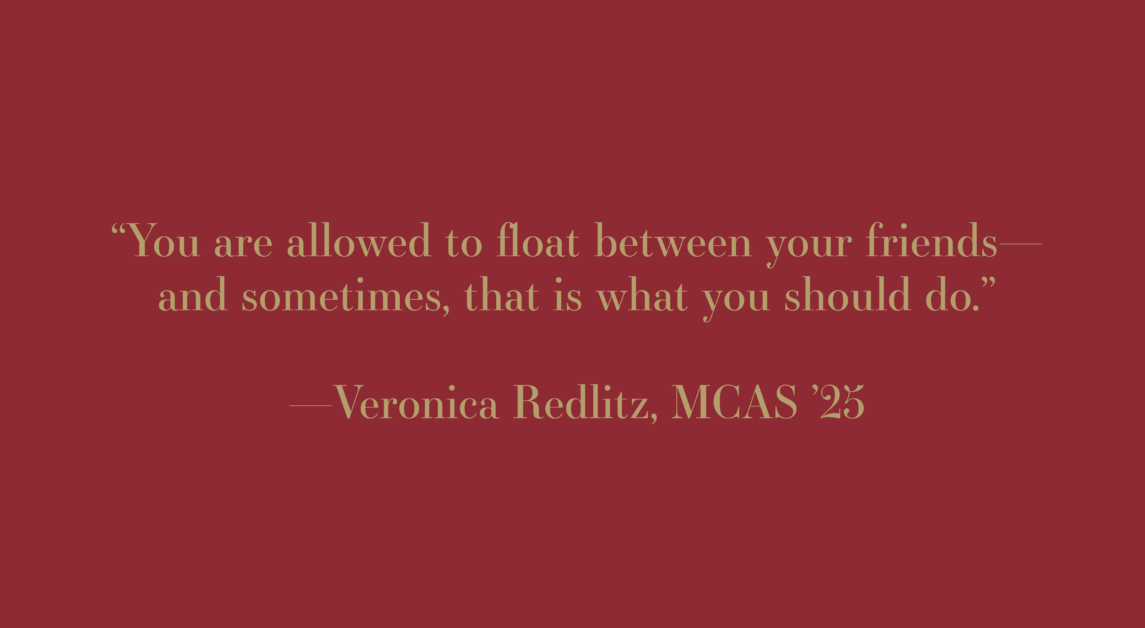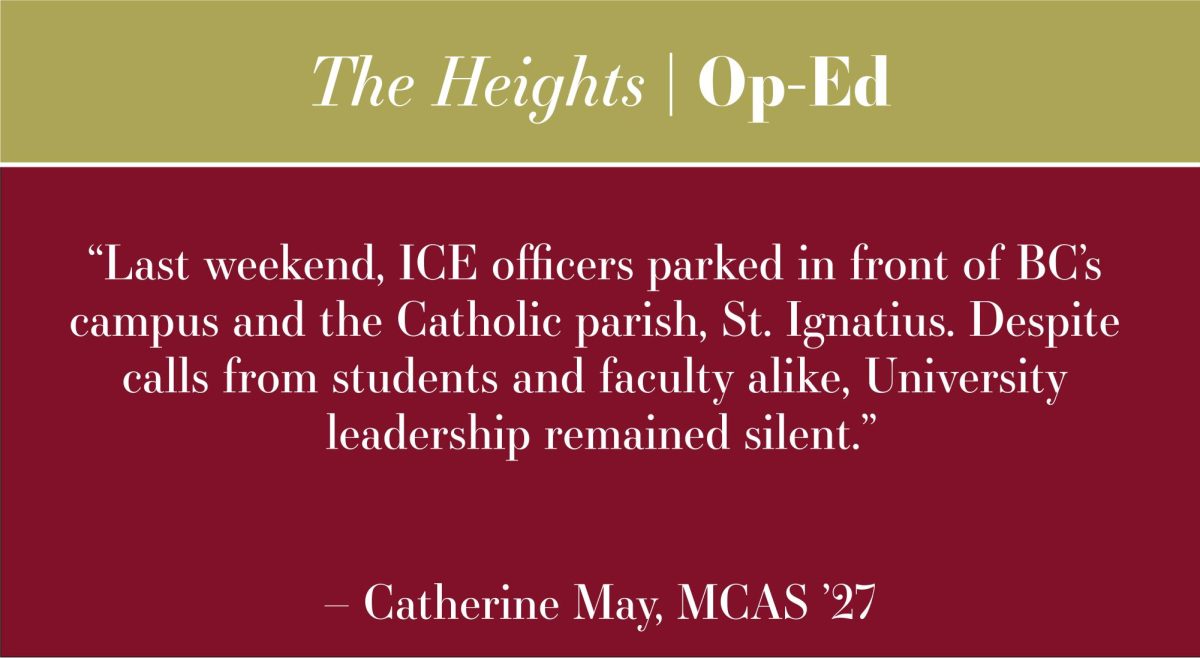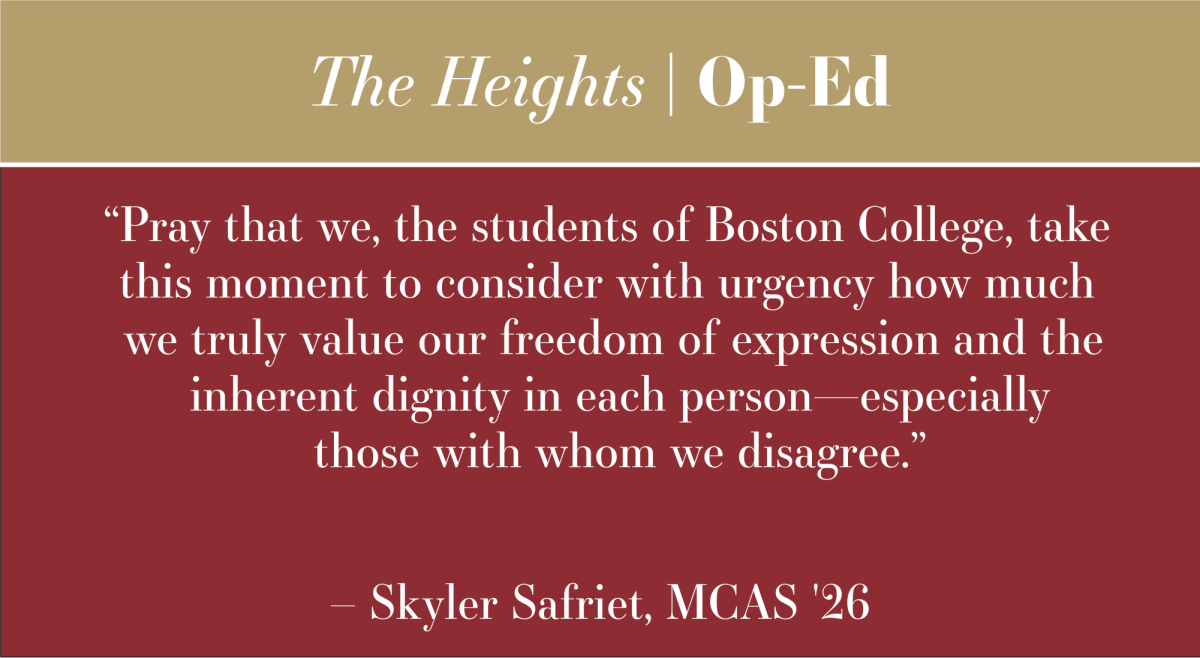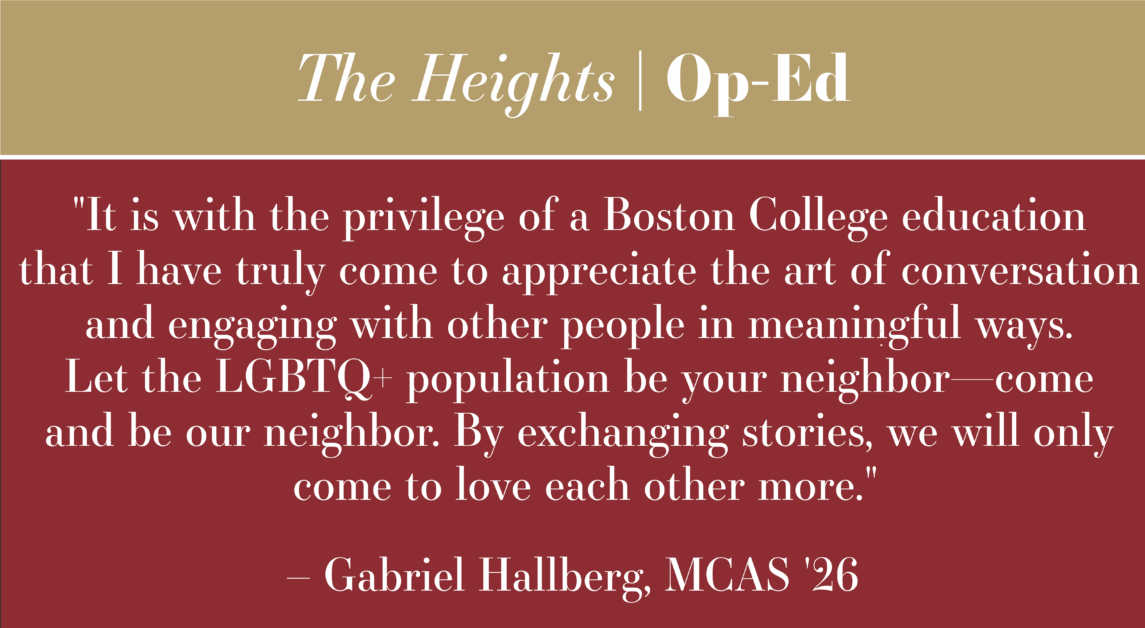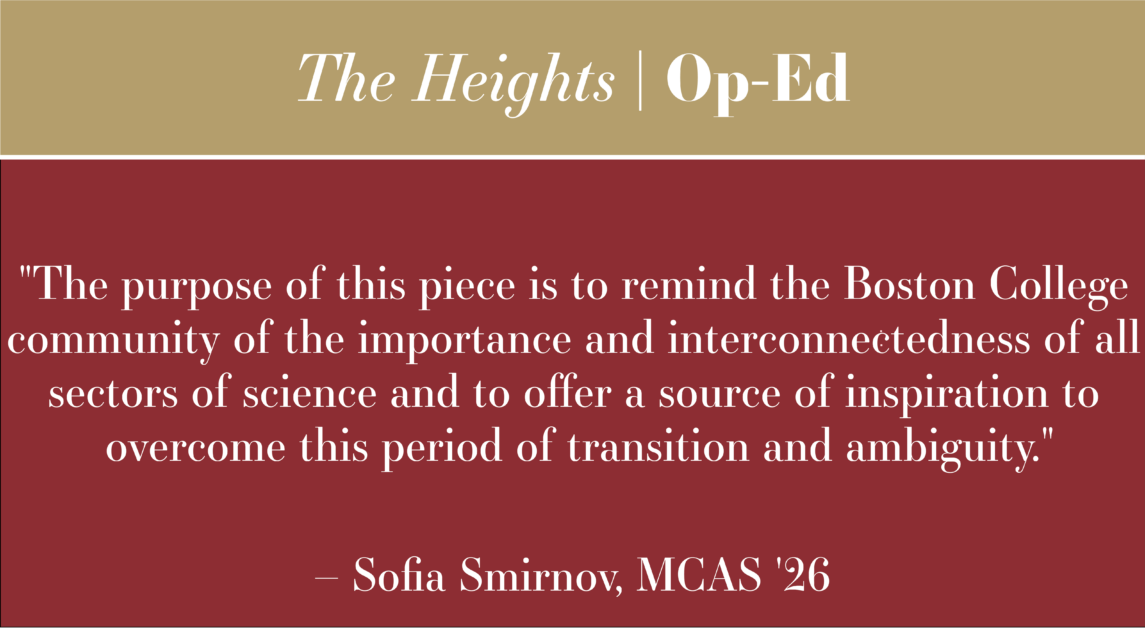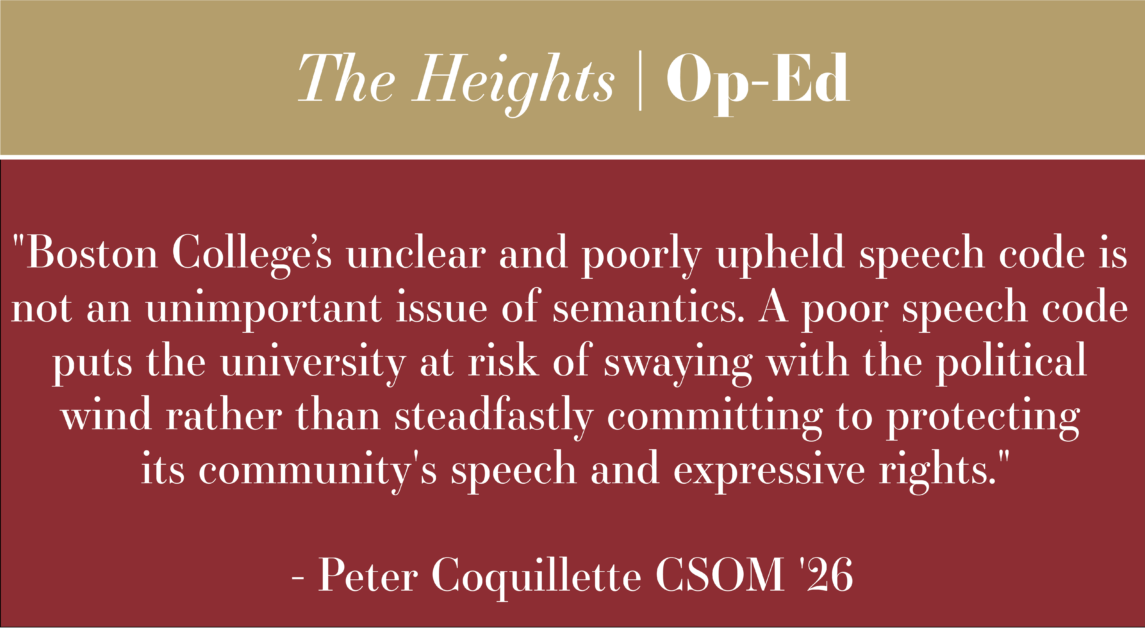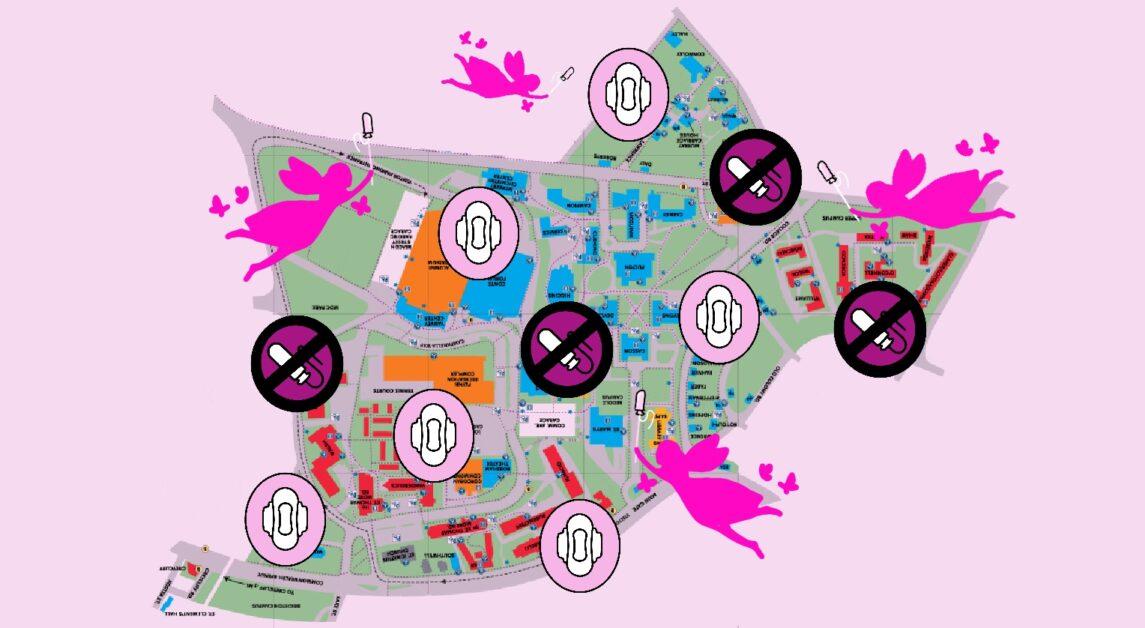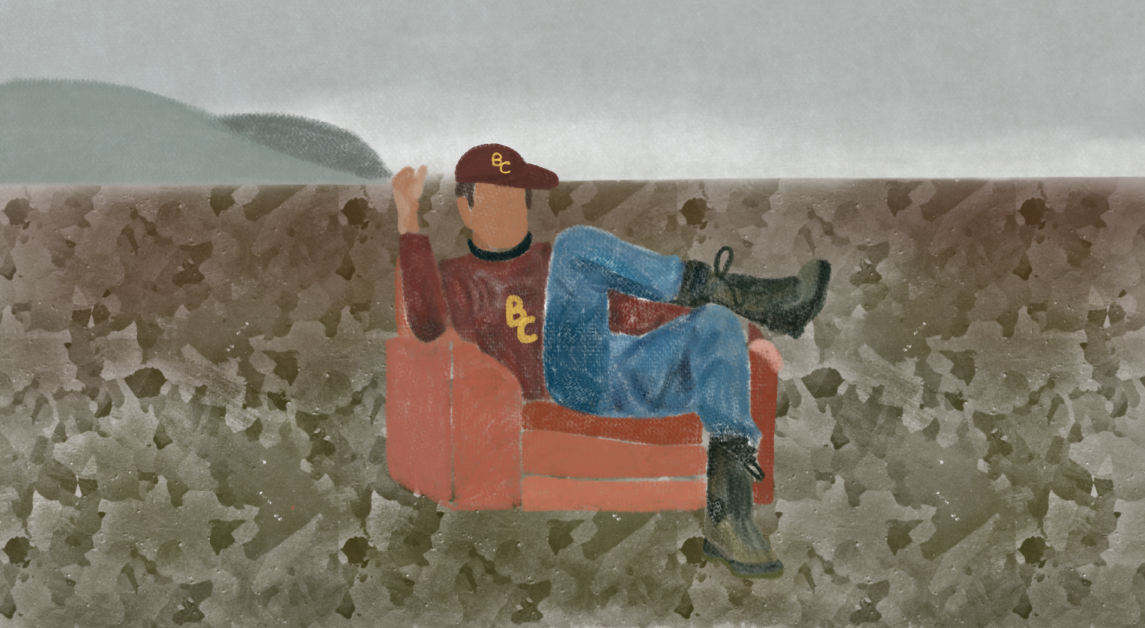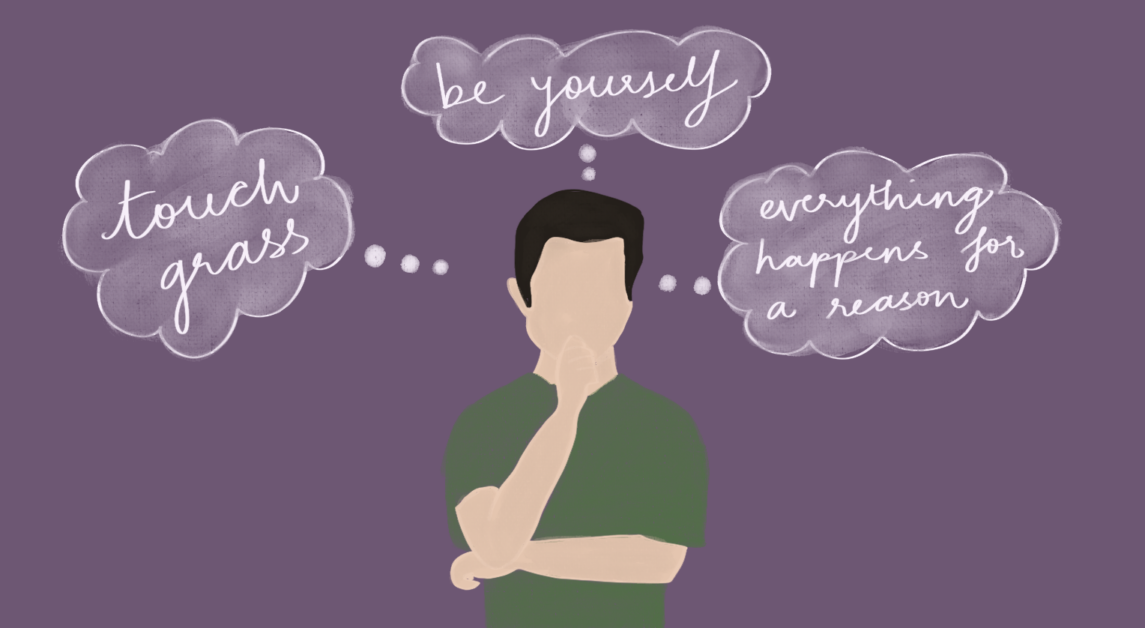I, too, was once like you—a happy member of a rock-solid group of friends. But I have been disenchanted with the exclusive, territorial friend group culture that pervades student life at Boston College. It leads to broken friendships and hurt hearts—both within and outside of the friend groups we create. Let me share my story with you.
Entering college, one of the foremost things on my mind—even ahead of preparing for classes or decorating my dorm room—was making friends. In the first days, I met as many people as I could, trying to get a sense of who might make a good friend. I got dinners with a big group of students from my hallway, and I went out with one group of people one night and a different group the next. Probably like many of you, I was quick to cling to anyone I seemed to click with.
After a week or two, it seemed clear who would stick. I began to spend a lot of time with the same group of about five other freshmen. They were the ones I shared meals with, went out with, and confided in. We became close quickly, and soon enough, we had drawn an imaginary line around our little group—keeping ourselves close to one another and making no effort to branch out.
It seemed like the perfect friend group. How could I ask for more? A month into college and I had already met the core group who would stick by my side throughout my four years at BC. But ‘perfect’ things are rarely what they seem.
As some of you are probably thinking by now, this is not a universally shared experience at BC—tons of students arrive at college and struggle for months, even years, to find their “people.” Friend group culture is easy to witness, however, whether or not you are in a friend group. Those on the inside draw hard boundaries around their group, preventing themselves from branching out, while those on the outside are met with brick walls at every turn and struggle to make meaningful bonds with those already in a group.
This was generally how it played out for me, as someone belonging to a group. Any people I met outside of the group who had the potential to become close friends remained acquaintances in my periphery—because the central focus of my social life was always on the friend group. I suppose I felt like I just didn’t need other friends. If I already had these people who I was so close with, why bother to spend time and energy cultivating separate individual friendships?
Though I may not have developed deep connections with others, I don’t mean to say I was dismissive or insincere. But I did not understand my surface-level kindness was only a Band-Aid slapped over the gaping hole that was the absence of individual friendships in my life. I had my friend group, sure, but I didn’t have any friends I could fully call my own.
There is another part of friend group culture that many people don’t realize and rarely talk about. This is the ticking bomb: strife within the bounds of the group. It started in my group as we slowly excluded people from events and outings, making the circle smaller and smaller. I justified it in my head by thinking that each person we excluded “just wasn’t my person.” Tensions among those of us left gradually rose, with conflictual bouts and bottled-up bitterness revealing themselves time and again. Eventually—I would argue, inevitably—our tight little circle condensed into a pressure cooker, and with one last tick, it blew.
If you’re reading this and thinking, “Well, I’m sorry, but my friend group isn’t like that,” or “Oh shit … what do I do now?”—don’t panic.
I am not recommending that you disband your friend group or leave your current friends to make new ones. I am, however, making a suggestion: Don’t put all your eggs in one friend group. Doing so will only end up hurting others, hurting your friends, and hurting you. Instead, nurture your strong friendships, but do not be afraid to go and pursue separate ones at the same time.
Make friends in different places. Get lunch with that boy from class, or invite that girl from your club over for a movie night. They don’t all have to become your best friend, and that’s okay. You are allowed to float between your friends—and sometimes, that is what you should do.
So if you’re feeling the tensions rising within your crew, or if you’re burnt out from searching for a group of your own, take a breath. Remind yourself that it will be okay. Then go make a new friend.

